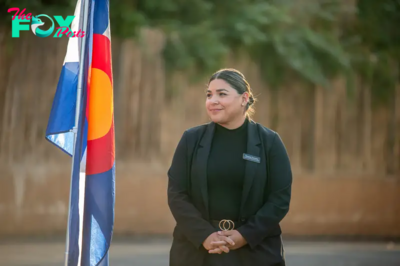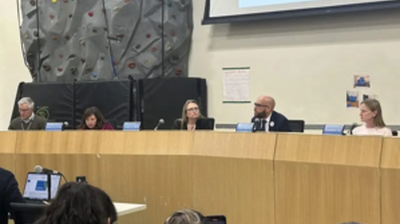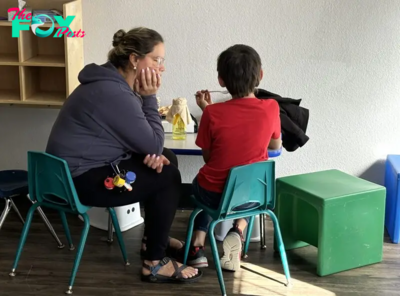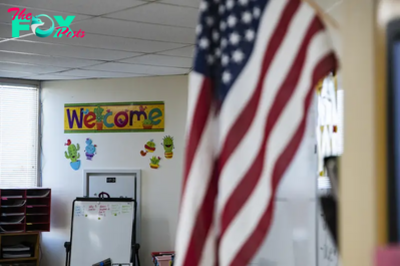Education
It’s taken 150 years, but Colorado’s deaf school finally has a superintendent who is deaf
COLORADO SPRINGS — The packed gym is nearly silent as dozens of conversations erupt around tables decorated in the school colors of red and black.
Former students, their graduation years spanning decades, have returned to the Colorado School for the Deaf and Blind, sipping coffee and catching up in sign language as they await the welcoming speeches.
The program is running behind on the first day of this alumni weekend, and of course there are well-worn jokes about “deaf standard time.” But then Tera Spangler takes the stage, and the side conversations stop.
In the 150-year History of the school, which opened with just seven students in 1874 when Colorado was still a territory, Spangler is the first superintendent who is deaf.
Spangler, who grew up in a small Iowa farming community and didn’t learn sign language until college, began working at the Colorado School for the Deaf and Blind in 2006 as a teacher and later became a principal. She became superintendent this year.
In her hometown of about 400 people, Spangler was the only deaf child in her school in the 1980s and 1990s. She wore hearing aids and a clunky device around her neck that was connected to the teacher’s microphone. A fellow student shared her notes, and Spangler learned to read lips. She studied her textbooks in advance so she could try to keep up in class, though she nearly always felt behind.
“I feel fortunate because it was a small school in a small town, and everyone knew my story,” Spangler said in an interview with The Colorado Sun, using an American Sign Language interpreter. “They really tried to help and support me, and it was nice, but at the same time, I felt like I could really never just be fully independent on my own.”
The deaf school in Iowa was two hours away, and, back then, Spangler wouldn’t consider leaving home.
Now, Spangler is the leader of the kind of school community she never had growing up, a place where students connect and communicate, where they don’t feel like they are different from their peers and don’t struggle to keep up.
“It’s hard to explain that feeling,” she said. “I’m proud. I’m honored.”
“Give those folks who are deaf and blind a chance”
Alumni had an easier time putting into words how much Spangler’s rise to superintendent means to the community.
“If you look at the history of the deaf community, and deaf schools, hearing people would make decisions on behalf of blind/deaf students,” Austin Balaich, who graduated in 2006, said through an interpreter. “It’s positions of power, positions of control, and not really willing to let that go and give those folks who are blind and deaf a chance. That lingers and has been a part of our history for a very long time.
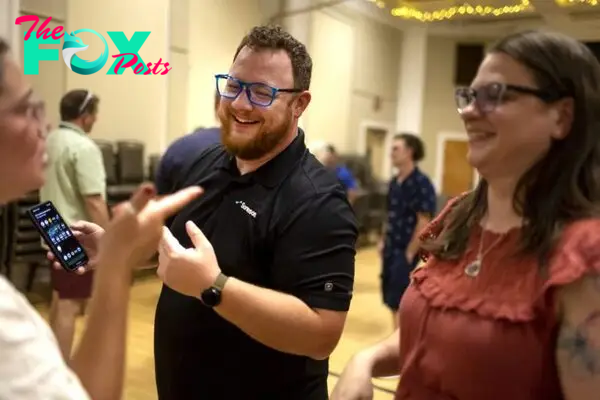
“Now with times changing, it’s really nice to see Tera in this role. She’s not exactly the same as me in terms of background, but she’s an ASL user, and she’s deaf like I am, so in terms of a role model to look up to, she sets that example for all of the students on this campus to see, ‘I can be like her.’”
Balaich, who is creative director at the caption phone service company Sorenson Communications, grew up in Colorado Springs, where his father was stationed in the U.S. Air Force. The deaf school, he said, was where he felt most at home, even though his parents learned sign language to communicate with him.
“This place felt like a place where I could become truly myself,” he said. “I didn’t have to work extra hard to understand things. I didn’t have to try to figure out what people were saying. My parents sure did try. At home, I had natural, strong connections. But this place, where everything was natural and just fell into place, it just felt good.”
Balaich, who was among those touring a new history museum on campus and swapping stories during the recent alumni event, said his favorite memory from his high school days was eating ice cream with his buddies after they won a 2004 national academic bowl. After returning to Colorado Springs, the group went to Josh and John’s Ice Cream, where the scoops were dumped right into the trophy.
Tim Elstad, class of 1978 and an alumni with legendary status because he was the quarterback of the only football team in school history to win a state championship, said a deaf superintendent has been a long time coming. Historically, careers for the deaf were limited, with many deaf people working as teachers in deaf schools or as newspaper printers, a trade taught at deaf schools beginning in the 1800s.
“There was sort of a pervasive attitude that a deaf person wasn’t ready for that kind of a position,” Elstad said. “Time passes. Deaf people become successful in careers and midlevel management. Now the time is right and that’s why there is a deaf superintendent.”
From now on, the Colorado School for the Deaf should select superintendents who are deaf, he said. “We hope it will continue,” Elstad said, also through an interpreter. “That precedent will be set and there will be other deaf superintendents that follow. I would like for the public to see how a deaf person can run a school. With the aid of interpreters, it can be done.”
-

 Education2d ago
Education2d agoPhiladelphia students have a new reading and writing curriculum − a literacy expert explains what’s changing
-

 Education2d ago
Education2d agoWhy school police officers may not be the most effective way to prevent violence
-

 Education5d ago
Education5d agoCampus diversity is becoming difficult to measure as students keep their race and ethnicity hidden on college applications
-

 Education6d ago
Education6d agoFederal judge rules that Louisiana shalt not require public schools to post the Ten Commandments
-
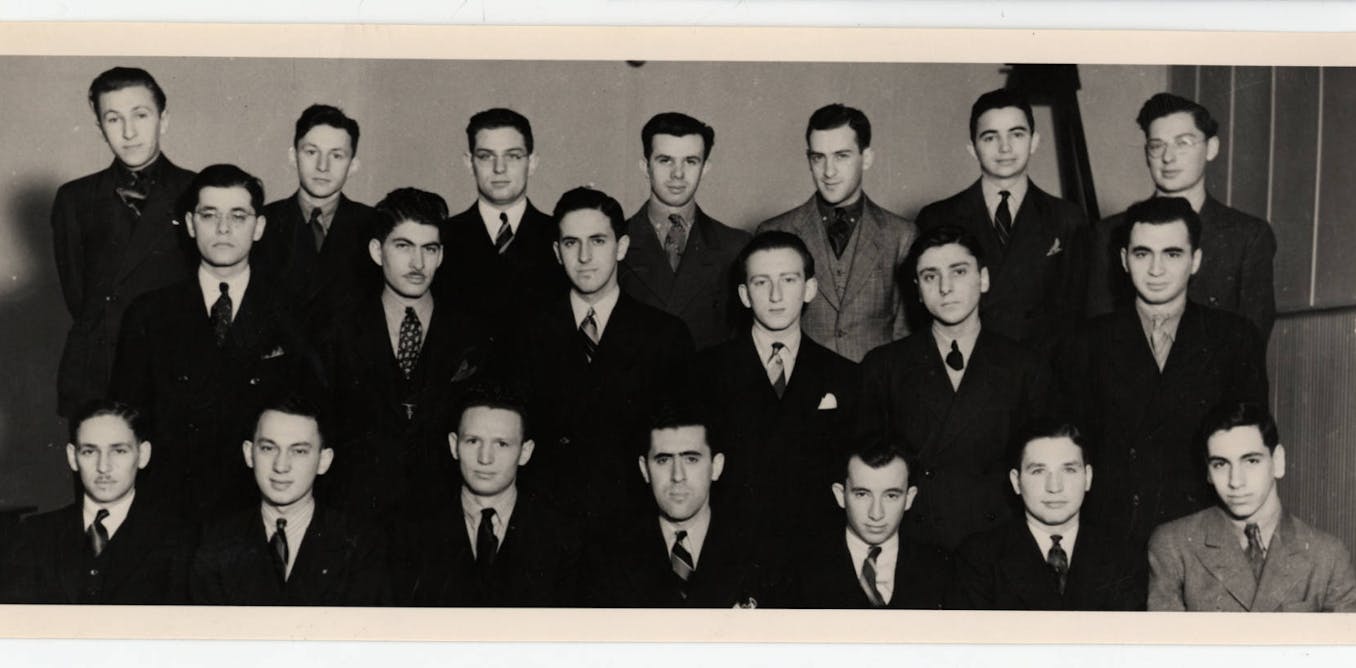
 Education6d ago
Education6d agoCampuses are ground zero in debates about antisemitism − but that’s been true for 100 years
-

 Education1w ago
Education1w agoSocioeconomic status explains most of the racial and ethnic achievement gaps in elementary school
-

 Education1w ago
Education1w agoMothers, metaphors and dyslexia: What language reveals about the challenges of a child’s learning disability
-

 Education1w ago
Education1w agoBrain-training games remain unproven, but research shows what sorts of activities do benefit cognitive functioning


